The Ultimate Guide to Residential Softwashing Debunking Common Myths
The Ultimate Guide to Residential Softwashing Debunking Common Myths
Introduction:
Hey there, fellow homeowners! I'll tell you a story that might sound familiar to you. A couple of years ago, I noticed my once-pristine white siding looked a bit… well, gross. Green streaks, black spots, and a general griminess that made my house look like it belonged in a haunted neighborhood rather than a cozy suburb. Yikes! So I had to unravel residential softwashing debunking common myths.
Being the DIY enthusiast I am, I figured I'd just grab my trusty pressure washer and blast away the gunk. Boy, was that a mistake! I had chipped paint, water under my siding, and a bruised ego. That's when I discovered the world of softwashing and, more importantly, the minefield of myths surrounding it.
Did you know that believing in residential softwashing debunking common myths could cost you thousands in unnecessary home repairs? I sure didn't, and I learned the hard way. But don't worry—I'm here to save you from making the same mistakes I did.
So, what exactly is softwashing? It's a gentle cleaning method that uses low-pressure water combined with specialized cleaning solutions to remove dirt, grime, and organic growth from your home's exterior. It's like giving your house a spa day instead of a harsh scrub-down.
Now, why am I making such a fuss about this? Well, proper home maintenance is crucial, not just for keeping up appearances (though who doesn't love a bit of curb appeal?) but also for protecting your biggest investment. The problem is that there's so much misinformation out there that it's easy to fall for cleaning methods that do more harm than good.
That's why I've put together this ultimate guide to residential soft washing debunking common myths. We'll bust through the most common myths, separate fact from fiction, and arm you with the knowledge you need to keep your home looking fantastic without accidentally turning it into a science experiment gone wrong.
In this guide, we'll tackle everything from the difference between soft washing and pressure washing (spoiler alert: they're not the same thing!) to whether DIY soft washing is really a good idea (spoiler alert: it usually isn't). We'll explore the environmental impacts, bust myths about cost and effectiveness, and even dive into how to choose a reliable softwashing service.
So grab a cup of coffee (or tea; I don't judge), get comfy, and let's dive into the sudsy world of soft washing. Trust me, by the time we're done, you'll be the neighborhood expert on keeping your home's exterior spotless—without falling for any of those pesky myths that could end up costing you big time.
Ready to become a softwashing savant? Let's get started!
What is Softwashing, and Why Does it Matter?
Alright, let's dive into the nitty-gritty of soft washing. Picture this: you're at a fancy spa, getting a gentle facial treatment. Now, imagine your house getting the same kind of TLC. That's essentially what soft washing is all about!
So, what exactly is this magical cleaning method? Softwashing is a low-pressure cleaning technique that combines specialized cleaning solutions and water to remove dirt, grime, algae, mold, and other organic growth from your home's exterior. It's like giving your house a bubble bath, but way more effective.
Now, I know what you're thinking – “But doesn't my house need a good, hard scrubbing?” I used to think the same thing! In fact, I once went at my vinyl siding with a stiff brush and elbow grease, only to realize I was just spreading the gunk around. It's not my proudest moment, but I'll tell you that.
The beauty of soft washing lies in its gentle approach. Unlike pressure washing, which can be like using a fire hose to water a delicate flower, soft washing treats your home's surfaces with respect. It's the difference between exfoliating your face with a gentle scrub and using a sandblaster. Yikes!
So, why does softwashing matter? Well, let me count the ways:
- It's safer for your home: Softwashing won't damage delicate surfaces like wood, vinyl siding, or shingles. Trust me, your gutters will thank you for not blasting them into oblivion.
- It provides longer-lasting results: The cleaning solutions used in soft washing don't just remove visible dirt; they also kill the organisms causing the mess. This means your home stays cleaner for longer. I once soft-washed my patio, which stayed pristine for over a year!
- Soft washing is versatile. From your roof to your driveway, it can tackle a variety of surfaces. It's like the Swiss Army knife of exterior cleaning.
- It's eco-friendlier: Many soft washing solutions are biodegradable and use less water than traditional pressure washing. Mother Nature gives them a big thumbs up!
- Soft washing can save you money in the long run. By preventing damage and extending the life of your home's exterior, soft washing can save you big bucks on repairs and replacements.
Now, let's talk about where softwashing really shines. It's perfect for:
- Siding: Whether you've got vinyl, wood, or fiber cement, soft washing cleans it without the risk of water intrusion.
- Roofs: Say goodbye to those ugly black streaks without damaging your shingles.
- Decks and fences: Restore that beautiful wood without splintering it to bits.
- Concrete and brick: Remove years of grime without etching the surface.
- Gutters: Clean 'em out without knocking them loose.
I remember the first time I had my roof soft-washed. I was skeptical—how could such a gentle method tackle those stubborn black streaks? But when I saw the results, I was floored. My roof looked brand new, and not a single shingle was damaged. It was like turning back the clock on my home's appearance!
So, there you have it—soft washing in a nutshell. It's gentle and effective and keeps your home looking its best without the risks associated with more aggressive cleaning methods. It's not just about making your house look pretty (though that's a nice bonus); it's about protecting your investment and maintaining your home's integrity.
In the next section, we'll bust one of the biggest myths in the cleaning world – the idea that soft washing and pressure washing are the same thing. Spoiler alert: they're as different as gentle rain and hurricanes! Stay tuned because knowing the difference could save you from a world of home maintenance headaches.
Myth #1: Softwashing and Pressure Washing are the Same Thing
Oh boy, if I had a dollar for every time I heard someone say, “Softwashing? Isn't that just a fancy term for pressure washing?” I'd have enough to buy a professional software rig! But let me tell you, these two cleaning methods are about as similar as a feather duster and a jackhammer.
Let me take you back to my pressure-washing disaster. There I was, proudly wielding my newly purchased pressure washer, ready to blast my house into cleanliness. Fast-forward an hour, and I'm staring at chipped paint, water-logged siding, and a very angry spouse. That's when I learned the hard way that pressure washing and soft washing are two very different beasts.
So, let's break it down:
Pressure Washing:
- Uses high-pressure water (typically 1300-4000 PSI)
- Relies mainly on water force to clean
- Can damage surfaces if not used correctly
- Great for tough, durable surfaces like concrete
Softwashing:
- Uses low-pressure water (usually under 500 PSI)
- Relies on cleaning solutions to do the heavy lifting
- Gentle on surfaces, reducing the risk of damage
- Ideal for most exterior surfaces, including delicate ones
Now, don't get me wrong—pressure washing has its place. It's like that tough gym teacher who gets results but might make you cry in the process. It's great for stripping old paint or cleaning up oil stains on your driveway but not so great for your vinyl siding or grandma's delicate garden furniture.
Softwashing, on the other hand, is more like that patient tutor who helps you ace the test without the stress. It combines low-pressure and biodegradable cleaning solutions to break down dirt and kill organic growth like algae and mold. It's the gentle giant of the cleaning world.
Here's a real-life example: Last summer, my neighbor decided to pressure wash his roof. I tried to warn him, but he insisted it was fine. Fast-forward to the first rainy day, and he's up there with a bucket and some tar, patching all the leaks he'd created. Meanwhile, I had my roof soft-washed by a pro, and it looked just as clean without a single damaged shingle.
So, when do you think you should use each method? Here's a quick guide:
Use Pressure Washing for:
- Concrete driveways and sidewalks
- Stripping old paint or stains from durable surfaces
- Cleaning heavy equipment or machinery
Use Softwashing for:
- House siding (vinyl, wood, stucco, etc.)
- Roofs (asphalt shingles, tiles, metal)
- Decks and fences
- Outdoor furniture
- Gutters and downspouts
- Any surface that could be damaged by high pressure
The big takeaway here? Knowing the difference between these two methods can save you from some serious headaches (and wallet aches). I learned it the hard way, so you don't have to!
Here's a pro tip I picked up: If you're unsure whether a surface needs pressure washing or soft washing, err on the side of caution and go with soft washing. It's better to start gently and work your way up if needed rather than accidentally blast away half your house's exterior!
Now, I know what some of you DIY enthusiasts might be thinking: “Can't I just turn down the pressure on my pressure washer and call it soft washing?” Well, not quite. Softwashing isn't just about low pressure—it's also about using the right cleaning solutions in the right concentrations. It's a bit like baking; you need the right ingredients in the right amounts for the magic to happen.
I once tried DIY software by dialing down my pressure washer and adding dish soap to the mix. Let's say my house looked like it had a bad case of the suds, and the dirt was still there, laughing at my feeble attempt. Lesson learned: sometimes it's best to leave it to the pros or at least invest in proper software equipment and solutions.
Remember, folks: soft washing and pressure washing might both get your house clean, but they do it in very different ways. Knowing when to use each can mean the difference between a sparkling clean home and an expensive repair job. So next time someone tries to tell you they're the same thing, you can confidently set them straight—and maybe save their siding in the process!
Myth #2: Softwashing is Harmful to Your Home's Exterior
Alright, let's tackle another whopper of a myth: the idea that soft washing is going to turn your beautiful home into a chemical wasteland or strip it down to the studs. I get it—when I first heard about using cleaning solutions on my house, I pictured my siding melting off like a scene from a sci-fi movie. But let me tell you, nothing could be further from the truth!
This myth probably stems from confusion about harsh chemical cleaners or the damage often caused by improper pressure washing. I remember my aunt once using a super strong deck cleaner that ended up stripping the stain right off her deck. Yikes! But soft washing? It's a whole different ball game.
Let's break down why soft washing is a friend to your home's exterior, not a foe:
- Gentle Cleaning Action: Softwashing uses low pressure, often no stronger than your average garden hose. This means there's no risk of driving water under your siding or stripping away protective coatings. I once saw a demo where a pro soft-washed a sheet of paper without tearing it—talk about gentle!
- Targeted Cleaning Solutions: The cleaning solutions used in softwashing are specifically designed to kill organic growth and break down dirt without harming building materials. They're typically biodegradable and pH-balanced to be safe for your home and the environment. It's like using a face wash instead of sandpaper on your skin!
- Protective Properties: Here's something cool—many soft washing solutions actually help protect your home's exterior. They leave behind a residue that continues to deter mold, mildew, and algae growth long after cleaning. It's like giving your house a protective shield!
- Preserve Paint and Finishes: Softwashing won't strip away paint or protective finishes, unlike aggressive cleaning methods. In fact, it can help extend the life of these coatings by removing the gunk that breaks them down over time.
- Safe for Various Materials: Whether you have vinyl siding, brick, stucco, or even delicate cedar shakes, soft washing can clean them all safely. It's the Swiss Army knife of exterior cleaning!
I'd like to share a personal experience that drove this point home. I noticed some nasty black streaks on my roof a few years back. Being the cautious homeowner I am, I hesitated to try any cleaning method. But those streaks were driving me up the wall!
Finally, I bit the bullet and hired a professional softwashing service. I watched like a hawk as they applied the solution and rinsed it off with low pressure. To my amazement, those stubborn streaks just melted away. Even better? No shingle was damaged, and my roof looked better than it had in years.
But the real test came a few months later. We had a home inspection for insurance purposes, and the inspector commented on how well-maintained our roof was. He said it looked like it had years of life left in it, all thanks to that gentle soft wash cleaning.
Here are some real-life benefits I've seen from soft washing:
- My vinyl siding stays clean for way longer than it used to.
- The algae that used to make my driveway slippery hasn't returned.
- My outdoor furniture looks new again, with no damage to the finish.
- The value of my home has likely increased due to improved curb appeal.
Now, I'm not saying soft washing is some magical, risk-free process. Like anything, it needs to be done correctly. Using the wrong solutions or applying them incorrectly can cause problems. That's why it's often best to leave it to the pros or at least do your homework if you're going the DIY route.
The bottom line? When done right, softwashing isn't just safe for your home's exterior – it's actually beneficial. It cleans effectively while preserving and protecting your surfaces. So next time someone tries to scare you with tales of softwashing horrors, you can confidently set them straight. Your house will thank you for it!
Myth #3: DIY Softwashing is Just as Effective as Professional Services
Ah, the siren call of DIY. I get it. There's something so satisfying about tackling a home improvement project yourself. I once built a whole deck with nothing but YouTube tutorials and sheer determination (we won't talk about the slight tilt it has). But when it comes to softwashing, the DIY route might not be the yellow brick road you're hoping for.
Let me take you back to my own DIY soft washing misadventure. Picture this: me, in my ratty old jeans, armed with a garden sprayer, some bleach, and a dream. I'd read a few online forums and figured, “How hard can it be?” Fast-forward a few hours, and I'm standing in a sea of suds, my plants are wilting, and my siding looks… well, let's just say it had seen better days.
Now, I'm not saying you can't do any softwashing yourself. But there's a big difference between touching up your patio furniture and tackling your whole house.
Here's why professional services often have the edge:
- Proper Equipment: Pros have access to specialized softwashing equipment that's far from your garden sprayer. We're talking about professional-grade pumps, nozzles, and application systems that ensure even coverage and proper pressure. It's like comparing a kiddie pool to an Olympic swimming pool.
- Expertise in Mixing Solutions: Getting the cleaning solution right is crucial. It needs to be stronger, and it won't clean effectively. Too strong, and you might damage your surfaces or landscaping. Professionals know exactly what concentration to use for different surfaces and levels of dirt. My DIY bleach solution? Let's just say it was about as precise as a blindfolded archer.
- Safety Measures: Softwashing involves working with chemicals and often at heights. Professionals have the right safety gear and training to handle these risks. Remember my sudsy adventure? I ended up with bleach stains on my favorite shirt and a twisted ankle from slipping on the wet ground.
- Comprehensive Cleaning: Pros know how to clean every nook and cranny of your home's exterior. They have the right tools to reach high spots and the knowledge to treat different areas appropriately.
- Time and Effort: A professional team can softwash your entire house in a fraction of the time it would take you to do it yourself. Plus, you don't have to spend your weekend covered in cleaning solutions. Time is money, folks!
- Guaranteed Results: Most professional services offer guarantees on their work. If you're not satisfied, they'll come back and fix it. With DIY, well… you're on your own.
Let me share a little story that drove this point home for me. After my DIY disaster, I bit the bullet and hired a professional softwashing service. The difference was night and day. They showed up with a truck full of equipment that looked like something from a sci-fi movie. In just a few hours, my house went from “slightly better than dirty” to “Is this the same house?!”
The pros cleaned areas I didn't even know were dirty. They treated my roof, siding, gutters, and even my driveway. The best part? Not a single plant was harmed in the process. They used eco-friendly solutions and took care to protect my landscaping. It was like watching artists at work, except they used soap and water instead of paint.
But here's the kicker—the results lasted much longer than my DIY attempt. It's been over a year, and my house still looks freshly cleaned. When I did it myself, I saw algae creep back within a month.
Now, I know what you're thinking—”But what about the cost?” Sure, professional services aren't free. But when you factor in the cost of buying or renting equipment, purchasing the right cleaning solutions, the value of your time, and the potential cost of fixing any mistakes, it often works out to be a pretty good deal.
Plus, consider the long-term benefits. Proper soft washing can extend the life of your paint job, prevent damage from mold and mildew, and even improve your home's energy efficiency by removing heat-absorbing grime. It's an investment in your home's longevity and value.
That being said, I'm not here to completely discourage DIY. If you're feeling ambitious and want to tackle smaller projects like cleaning your patio furniture or a small deck, go for it! Make sure you research, use the right equipment and solutions, and always prioritize safety.
But for big jobs like your whole house exterior or roof? My advice would be to leave it to the pros. Trust me, your house (and your back) will thank you for it. Sometimes, the best DIY decision you can make is knowing when to call in the experts!
Myth #4: All Softwashing Solutions are Harmful to the Environment
Okay, let's tackle a myth that really gets under my skin—the idea that soft washing is basically like dumping toxic waste all over your yard. I'll admit, when I first heard about the chemicals used in soft washing, I had visions of my garden turning into a barren wasteland and my kids growing extra toes. But boy, was I wrong!
This myth probably stems from a misunderstanding of the cleaning solutions used in soft washing and maybe some confusion with harsher industrial cleaners. Let me tell you, modern soft washing is a far cry from the caustic chemicals of yesteryear.
Here's the real deal on soft washing and the environment:
- Biodegradable Solutions: Most professional softwashing companies use biodegradable cleaning solutions. These break down naturally in the environment without leaving harmful residues. It's like using eco-friendly dish soap instead of industrial degreasers.
- Targeted Application: Softwashing isn't about drenching your property in chemicals. It's a targeted approach using enough solutions to complete the job. Pros know how to apply it efficiently, minimizing runoff and waste.
- Water Conservation: Believe it or not, softwashing often uses less water than traditional pressure washing. Less water usage means less runoff and less impact on the local water system. It's a win-win!
- pH-Balanced Formulas: Many softwashing solutions are pH-balanced to be gentle on surfaces and the environment. They're designed to kill algae and mold without harming plants or soil.
- Safe for Landscaping: When done correctly, soft washing shouldn't harm your plants or grass. Professionals take precautions, like pre-wetting vegetation and using plant-friendly formulas.
Now, let me share a personal experience that really opened my eyes to the eco-friendliness of proper soft washing. A few years back, I hired a company to softwash my house. I was a bit nervous about my prized rose bushes, which grow right up against the siding. I mean, these roses are my babies—I talk to them, play them music, the whole nine yards.
The soft washing team assured me they used eco-friendly solutions and would take extra care around my plants. Still, I watched like a hawk as they worked. They pre-wet the soil and plants, use just enough cleaning to do the job and rinse thoroughly.
The result? My house looked amazing, and my roses? They didn't just survive; they thrived! In fact, the next blooming season, they looked better than ever. Removing all that mold and algae from the siding allowed more sunlight to reach my plants. Who knew?
But here's where it gets exciting. Remember that algae-covered north side of my house? The one that always looked like it was auditioning for a horror movie? Well, after the soft washing, it cleaned up beautifully, and the chronic moisture problem I'd been battling for years improved dramatically.
See, all that algae and mold was trapping moisture against the house. By removing it safely, we improved the overall health of the structure. Less moisture means less chance of rot, mold inside the walls, and even fewer insects. It's like soft washing gave my house a health makeover!
I'm not saying you should drink a soft washing solution or use it as a sports drink. Like any cleaning product, it needs to be used responsibly. But when applied correctly by professionals (or well-informed DIYers), it's safe for your property and the environment.
Here are some eco-friendly tips I've picked up for soft washing:
- Choose companies that use biodegradable, environmentally friendly cleaning solutions.
- Ask about their practices for protecting plants and managing runoff.
- Consider softwashing during a time of year when your plants are less vulnerable.
- If doing it yourself, research eco-friendly softwashing solutions and proper application techniques.
- Always follow local regulations regarding runoff and chemical use.
The bottom line? Softwashing, when done right, is not the environmental boogeyman some make it out to be. In fact, safely removing harmful mold, mildew, and algae can actually benefit your local environment. It's all about using the right products and techniques.
So next time someone tries to tell you that soft washing will turn your yard into a toxic waste dump, you can set them straight. Share your knowledge about biodegradable solutions, targeted applications, and the benefits of a mold-free exterior. Who knows? You might just convert them into a softwashing believer!
Myth #5: Softwashing Provides Instant, Permanent Results
Oh boy, if I had a nickel for every time I heard someone say, “Just soft wash it and forget it!” I'd have enough to buy a really nice soft washing rig. But here's the thing: while soft washing is amazing, it's not a magic wand that instantly and permanently transforms your home's exterior. Let's bust this myth wide open, shall we?
When I first had my house softwashed, I was like a kid on Christmas morning. The results were incredible! My siding went from grimy to gleaming, and those black streaks on my roof? Gone! I thought to myself, “This is it. I'll never have to clean my house again!” Spoiler alert: I was wrong.
Let's break down the reality of soft washing results:
- The Instant Effect: Yes, softwashing can provide dramatic before-and-after results. It's like giving your house a facelift. But…
- The Gradual Process: Some stains, especially those that have been there for years, might take a bit more time to disappear fully. It's not unusual for the full effects of soft washing to become apparent over the course of a few days or even weeks.
- The Longevity Factor: While soft washing results last much longer than traditional pressure washing, they're not permanent. Depending on your environment, you might need to softwash every 1-3 years.
- The Environmental Impact: Factors like shade, moisture, and local climate can affect how long your results last. My north-facing wall? It tends to get dirty faster than the sun-baked south side.
Let me tell you about my “aha” moment with softwashing results. About six months after my first professional softwash, I noticed some green stuff creeping up on my fence. At first, I was disappointed. “I thought this was supposed to last!” I grumbled to myself.
But then I remembered a conversation I had with the soft washing pro. He explained that while the cleaning solutions continue to work for a while after application, they're not a forcefield against future growth. They give you a clean slate, slow grime re-accumulation, and organic growth.
And you know what? When I compared my fence to my neighbor's (sorry, Bob!), the difference was still night and day. Mine had some new growth, but he looked like he was auditioning for a Chia Pet commercial.
Here's a pro tip I wish I'd known earlier: Take “before” pictures! Trust me, you might need to remember how dirty your house was after a few months. Having those before shots will remind you of the dramatic improvement, even if a bit of grime has started to return.
Now, let's talk about setting realistic expectations. When my roof was softwashed, the pro said something that stuck with me. He said, “Think of this like mowing your lawn. It looks great when you're done, but you know the grass will grow back. Our job is to make it look great and slow down that regrowth as much as possible.”
That analogy really helped me understand the nature of soft washing. It's not a one-and-done solution but a highly effective part of ongoing home maintenance.
And you know what? I'm okay with that. Here's why:
- Even though it's not permanent, soft washing lasts longer than traditional cleaning methods.
- The process is gentler on my home's surfaces, which means less wear and tear over time.
- Regular soft washing helps prevent deep-set stains and growth that can damage my home's exterior.
- It's a proactive approach to home maintenance that can save money in the long run by preventing more serious issues.
So, while softwashing isn't a “set it and forget it” solution, it's still an incredibly effective way to keep your home looking its best. The key is understanding what to expect and planning for periodic maintenance.
Remember, a clean home exterior isn't just about looks. It's about protecting your investment, maintaining your property value, and even contributing to a healthier living environment. By keeping realistic expectations about softwashing results, you can enjoy a cleaner, more beautiful home year-round.
Just don't make my mistake of bragging to the neighbors that you'll never have to clean your house again. Trust me, they'll remember and remind you when those algae spots start to creep back!
Myth #6: Softwashing is Only for Cleaning Visible Dirt and Grime
Alright, folks, let's tackle a myth that's as stubborn as those mystery stains on your driveway—the idea that soft washing is just about making things look pretty. Sure, the visible results are fantastic (I still do a double-take when I pull into my driveway), but there's so much more going on beneath the surface. Let me tell you, soft washing is like a superhero disguised as a cleaning service!
I used to think the same way. “Why bother cleaning if it doesn't look dirty?” was my motto. Boy, was I in for a surprise! Let me take you back to the Great Mold Discovery of 2019 in the Johnson household (that's me, in case you're wondering).
It all started when I noticed a musty smell in our sunroom. The walls looked clean, so I just assumed it was the dog (sorry, Rover). But when we decided to repaint, we pulled back some trim and – surprise! – found a thriving mold colony. It turns out that invisible contaminants have been partying behind our walls for who knows how long.
That's when I learned that softwashing isn't just about what you can see. Here's what it's really doing:
- Killing Invisible Microorganisms: Softwashing solutions are designed to eliminate algae, mold, mildew, and bacteria – even the stuff you can't see. It's like sending a microscopic SWAT team to remove the bad guys.
- Preventing Future Growth: Soft washing solutions don't just clean; they leave behind a residue that continues to prevent organic growth for months. It's like applying a force field to your house!
- Removing Pollutants: Softwashing can remove air pollutants, pollen, and other contaminants that accumulate on surfaces. Your house will literally breathe easier after a good soft wash.
- Improving Indoor Air Quality: Eliminating mold and mildew on the exterior reduces the chance of these nasties making their way inside. It's an outside job with inside benefits!
- Extending the Life of Your Exterior: Regular soft washing removes corrosive substances that can degrade your home's exterior over time. It's like giving your house a multivitamin!
Let me share another eye-opening experience. After the mold incident, I decided to have our whole house soft-washed, even the clean parts. The soft washing pro used a special light to show me the organic growth on our siding. I was shocked! Under normal light, it looked fine, but this light revealed a horror show of algae and mold spores.
As they cleaned, I noticed something fascinating. The runoff water started out really dirty, even from areas that looked clean to the naked eye. It was like watching years of invisible gunk being washed away.
But here's where it gets really interesting. About a month after the soft washing, I noticed that our energy bill had gone down. I couldn't figure out why until the soft washing pro explained it to me. All that invisible grime was actually making our housework harder to stay cool. By removing it, we had inadvertently improved our home's energy efficiency. Talk about a bonus!
Here are some hidden benefits of soft washing that go beyond appearances:
- Health Benefits:
- Reduces allergens around your home
- Eliminates mold that could cause respiratory issues
- Creates a cleaner environment for kids and pets to play
- Structural Protection:
- Prevents organic growth from degrading building materials
- Reduces moisture retention that can lead to rot
- Helps identify potential problem areas before they become serious
- Energy Efficiency:
- Removes heat-absorbing dark stains and organic growth
- Allows your home's designed reflectivity to work properly
- Can contribute to lower energy bills
- Pest Control:
- Eliminates food sources for many insects
- Reduces moisture that attracts pests
- Makes it easier to spot potential pest entry points
- Property Value:
- Maintains curb appeal between paint jobs
- Prevents long-term damage that could affect home value
- Creates a positive impression for potential buyers or appraisers
Now, I'm not saying softwashing is a cure-all. It's not going to fix structural issues or replace necessary home maintenance. But it's a powerful tool in your home care arsenal that goes way beyond just making things look nice.
Here's a pro tip: Even if your house looks clean, consider soft washing every few years as preventative maintenance. Think of it like going to the dentist—you don't wait until your teeth hurt to get a cleaning, right?
The bottom line is that Softwashing does much more than meets the eye. It's not just about keeping up with the Joneses (though I'll admit, making Bob next door jealous of my sparkling clean house is a nice bonus). It's about protecting your home, improving your living environment, and potentially saving money in the long run.
So the next time someone tells you softwashing is just about appearances, you can set them straight. It's not vanity; it's smart home care. And who knows? You might just save them from their own Great Mold Discovery someday!
Myth #7: Softwashing is Too Expensive for Regular Home Maintenance
Alright, let's talk money. I know what you're thinking – “Softwashing sounds great, but my wallet is already crying from all the other home maintenance costs!” Trust me, I've been there. When I first heard about professional softwashing, I thought it was a luxury service only for those fancy houses in the ritzy part of town. Boy, was I wrong!
Let me take you back to my “penny-wise, pound-foolish” days. I was the DIY king, always looking for the cheapest way to keep my house clean. Every spring, I'd break out my trusty pressure washer, blast away at my siding and roof, and call it a day. Sure, it looked okay… for about a month.
But here's the kicker—all that aggressive cleaning was actually costing me more in the long run. I was damaging my siding, forcing water under my shingles, and basically giving my house a beating every year—not to mention the time and effort I was putting in!
So, let's break down the actual cost of soft washing:
- Upfront Cost vs. Long-Term Savings: Yes, professional soft washing might seem pricier upfront than renting a pressure washer. But consider this: the results last much longer, and you're preventing expensive damage to your home's exterior.
- Frequency of Service: While you might need to pressure wash (or attempt to clean with a garden hose) multiple times a year, soft washing typically only needs to be done every 1-3 years, depending on your environment.
- Professional Equipment and Solutions: When you hire pros, you're not just paying for their time. You're getting the benefit of professional-grade equipment and specially formulated cleaning solutions that you'd have to invest in yourself for a DIY job.
- Time is Money: Remember to factor in the value of your time. A DIY cleaning job could take up your entire weekend, while pros can usually finish in a few hours.
- Preventing Costly Repairs: By regularly removing harmful substances from your home's exterior, you can prevent damage that could lead to expensive repairs down the line.
Let me share a little story that drove this point home for me. I noticed some water stains on my living room ceiling a couple of years ago. It turns out that my aggressive pressure washing had damaged my roof shingles, leading to a leak. What is the cost to repair the roof and fix the water damage inside? Let's just say it would have been a lot more than years of professional soft washing.
But the real eye-opener came when I finally bit the bullet and hired a professional softwashing service. Here's what I learned:
- The initial cost was less than I expected. Sure, it was more than renting a pressure washer, but not astronomically so.
- The results were far superior to anything I had achieved on my own. My house didn't just look clean; it looked new.
- The softwashing company offered a maintenance plan that made regular cleanings even more affordable. It was like a spa membership for my house!
- After the cleaning, my energy bills went down. All that gunk on my siding and roof had made my HVAC system work overtime.
- I actually saved money on paint. The gentle cleaning extended the life of my exterior paint job by years.
Let's do a little cost comparison:
DIY Pressure Washing:
- Equipment rental: $50-100 per day
- Cleaning solutions: $20-50
- Your time: Priceless (but let's say $150 if you had to hire someone)
- Potential damage to siding/roof: $$$
- Frequency: 2-3 times per year Total: Approximately $440-900 per year, plus potential repair costs
Professional Softwashing:
- Full house cleaning: $300-600 (varies by house size and location)
- Frequency: Every 1-3 years. Total: Approximately $100-600 per year
When you factor in the reduced risk of damage, the superior results, and the time saved, professional softwashing starts to look like a bargain!
Here are some tips to make soft washing even more budget-friendly:
- Please be sure to look for off-season discounts. Many companies offer better rates in the fall or winter.
- Consider a maintenance plan. Regular cleanings often come at a discounted rate.
- Combine services. Some companies offer discounts if you get your house, roof, and driveway cleaned simultaneously.
- You can get multiple quotes. Prices can vary, so it pays to shop around.
- Could you take before and after photos? Seeing the dramatic difference can help you appreciate the value of the service.
Remember, home maintenance is all about prevention. Spending a little on regular soft washing can save you big bucks on repairs and replacements down the line. It's like that old saying: “An ounce of prevention is worth a pound of cure.” In this case, a gallon of soft washing solution is worth a truckload of repair bills!
So, the next time you're tempted to skip softwashing to save a few bucks, remember this: It's not just a cleaning service; it's an investment in your home's longevity and value. And hey, the neighbor envy when your house is the cleanest on the block? That's just a bonus!
How to Choose a Reliable Softwashing Service
Alright, so you're convinced that soft washing is the way to go. Great! But now you're facing a new challenge—finding a reliable soft washing service. Don't worry—I've been there, and I've learned a thing or two about separating the pros from the… well, let's just say the not-so-pros.
Let me take you back to my first attempt at hiring a softwashing service. I went with the cheapest quote I could find (hey, old habits die hard). The guy showed up in a beat-up truck, sprayed some mystery solution on my house, and called it a day. The results? Let's just say my house looked less “professionally cleaned” and more “hit by a soapy tornado.”
Learn from my mistakes, folks. Here's what to look for when choosing a softwashing service:
- Experience and Expertise:
- How long have they been in business?
- Do they specialize in softwashing, or is it just a side gig?
- Can they explain their process in detail?
- Proper Equipment:
- Do they have professional-grade softwashing equipment?
- Are their cleaning solutions specifically formulated for softwashing?
- Insurance and Licensing:
- Are they fully insured? (This is crucial – you want to avoid liability if something goes wrong!)
- Do they have any relevant licenses or certifications?
- References and Reviews:
- Would you be able to provide references from past clients?
- What do their online reviews look like?
- Detailed Quote:
- Do they provide a comprehensive, written quote?
- Do you know if the quote is based on an actual inspection of your property?
- Environmental Responsibility:
- Do they use eco-friendly cleaning solutions?
- How do they handle runoff and protect your landscaping?
- Guarantee:
- Do they offer any kind of satisfaction guarantee?
- What's their policy if you're unhappy with the results?
Let me share a little story about how I finally found my go-to softwashing team. After the “soapy tornado” incident, I decided to do my homework. I asked around in my neighborhood Facebook group (oh yeah, I'm hip with the times) and got a few recommendations.
I called three companies and asked them each a barrage of questions. Two of them seemed annoyed by my curiosity, but the third? They were patient, knowledgeable, and even excited to explain their process. That's when I knew I'd found a winner.
When they came to do the job, I was blown away. They spent time inspecting my house before starting, explained what they were doing at each step, and even pointed out some potential issues with my gutters that I had yet to notice. Talk about going above and beyond!
Here are some questions you should ask potential softwashing services:
- “What's your soft washing process?” (They should be able to explain it in detail)
- “What kind of cleaning solutions do you use?” (Look for biodegradable, environmentally friendly options)
- “How will you protect my landscaping?” (They should have a plan for this)
- “Can you provide before and after photos of past jobs?”
- “What kind of guarantee do you offer?”
- “Are you insured, and can you provide proof of insurance?”
- “How long have you been softwashing, and is this your main business?”
- “Do you offer any maintenance plans for regular cleaning?”
Red flags to watch out for:
- Extremely low prices (if it seems too good to be true, it probably is)
- Lack of insurance or unwillingness to provide proof
- Vague answers about their process or cleaning solutions
- Pressure to decide on the spot
- No written quote or contract
- Poor communication or unprofessional behavior
Remember, you're not just hiring someone to clean your house; you're entrusting them with one of your biggest investments. It's worth taking the time to find a service you can trust.
And here's a pro tip: Once you find a great softwashing service, stick with it! Building a relationship with a reliable company can lead to better service, loyal customer discounts, and peace of mind, knowing your home is in good hands.
Choosing the right soft washing service might take a little extra time and effort upfront, but trust me, it's worth it. The right team will not only leave your house looking amazing but will also help you maintain and protect it for years to come. And hey, when your neighbors start asking how you keep your house looking so great, you'll know exactly who to recommend!
Conclusion:
Wow, we've been on quite a journey through the world of soft washing, haven't we? From busting myths to sharing embarrassing DIY stories (mostly mine), we've covered a lot of ground. But here's the thing—all this information isn't worth a hill of beans if you don't use it.
So, let's recap the main myths we've debunked:
- Softwashing and pressure washing are different. (RIP, my poor siding)
- Softwashing is not harmful to your home's exterior. (In fact, it's like a spa day for your house)
- DIY softwashing is not as effective as professional services. (Trust me, I learned this the hard way)
- Softwashing solutions are not all harmful to the environment. (Your plants will thank you)
- Softwashing only provides temporary results. (But it's still pretty darn impressive)
- Softwashing isn't just for visible dirt and grime. (It's fighting the battles you can't see)
- Softwashing isn't too expensive for regular home maintenance. (Your wallet will thank you in the long run)
The key takeaway here is that proper information is vital regarding home maintenance. Softwashing, when done right, is an effective, safe, and valuable tool in keeping your home looking great and functioning well.
But remember, knowledge is just the first step. The real magic happens when you take action. Whether that means hiring a professional softwashing service, adjusting your home maintenance schedule, or just being more mindful about how you clean your home's exterior, the important thing is to do something.
Your home is more than just a building; it's a sanctuary, an investment, and, for many of us, the backdrop to some of life's most precious moments. It deserves to be cared for properly. Now that you're armed with the facts about soft washing, you can make informed decisions about how to do just that.
So, what's your next move? It may be time to get some quotes from professional softwashing services in your area. Or you may want to do more research on the best eco-friendly cleaning solutions. Whatever you decide, just remember – your house will thank you for it. (And so will your neighbors when your sparkling clean home makes the whole street look better!)
Before we wrap up, I want to encourage you to share your own soft washing experiences. Did you have a soft washing revelation like I did? Have you found a great local service you want to rave about? Or maybe you have more questions about soft washing that we haven't covered here. Drop a comment below! Let's keep the conversation going and help each other keep our homes looking their best.
Remember, a clean home is a happy home. With soft washing in your maintenance toolkit, you're well on your way to having the happiest (and cleanest) home on the block. Happy soft washing, everyone!
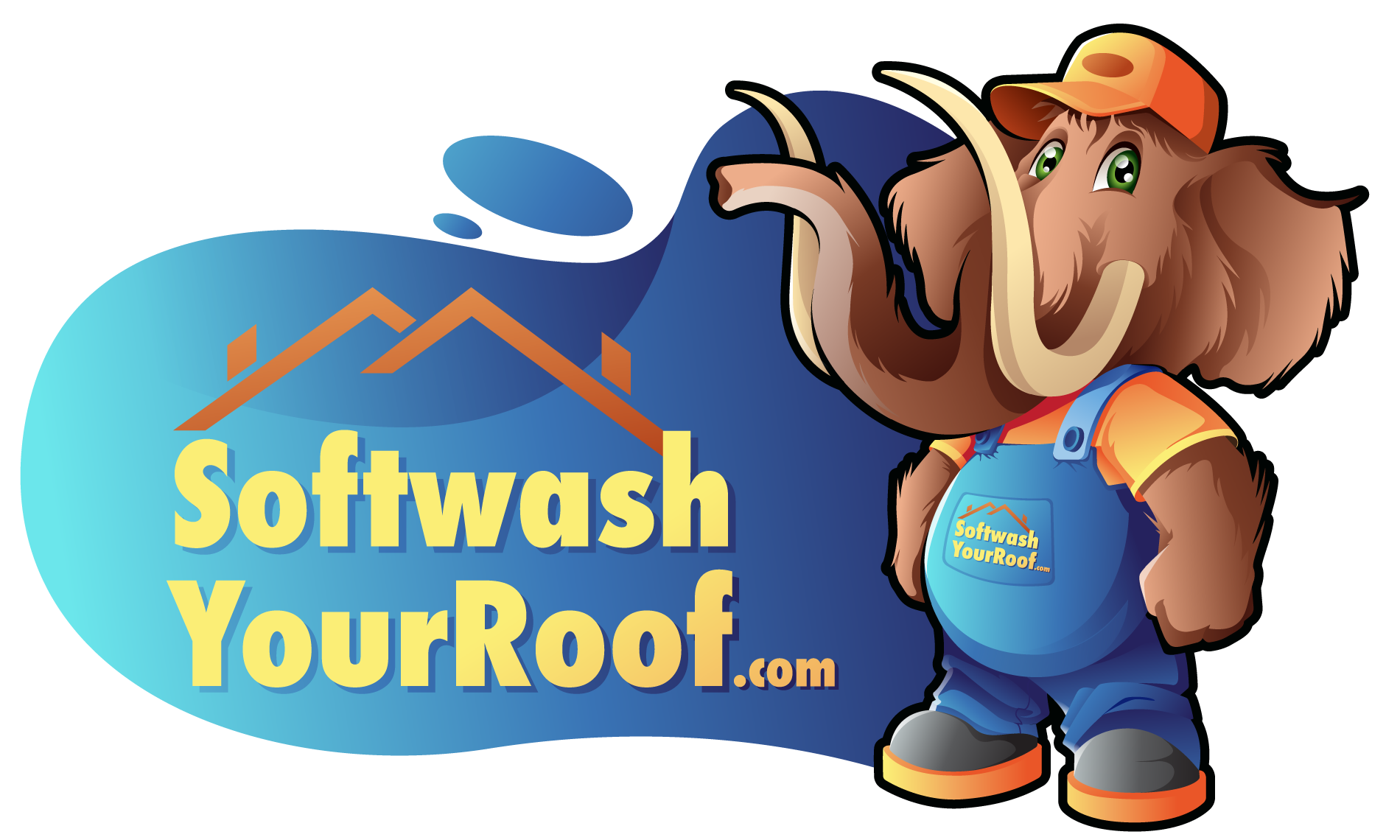
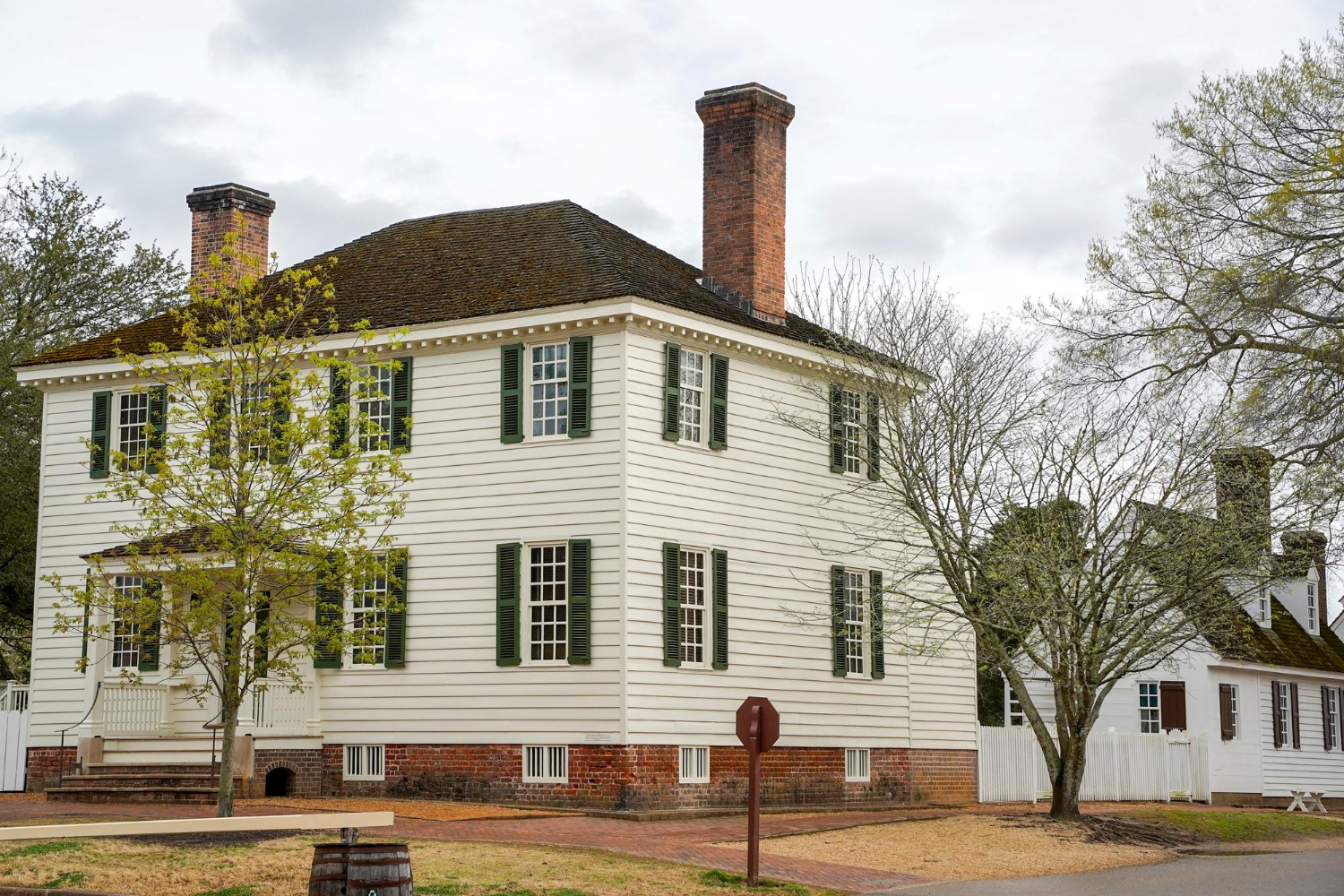
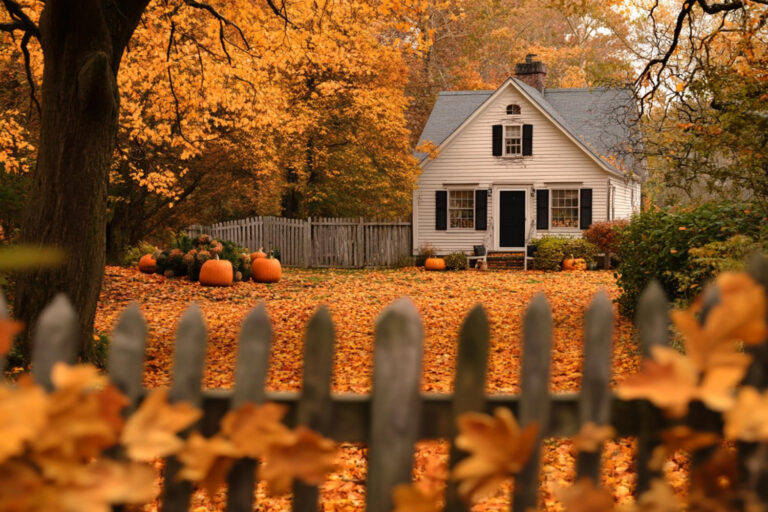

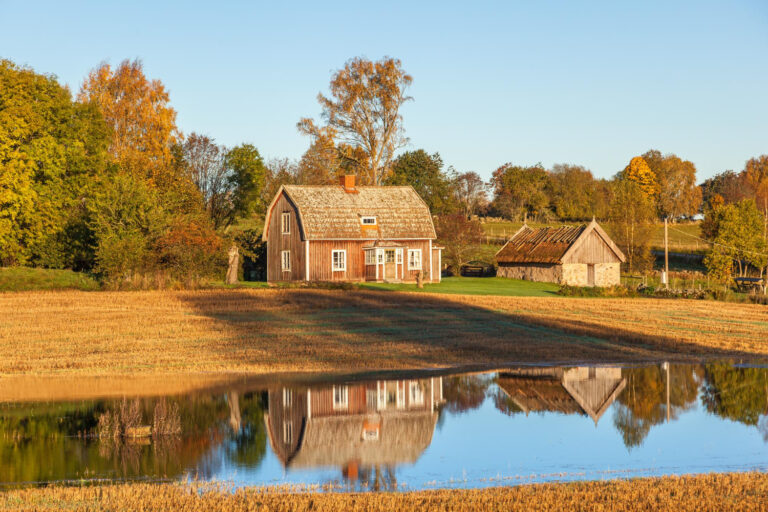
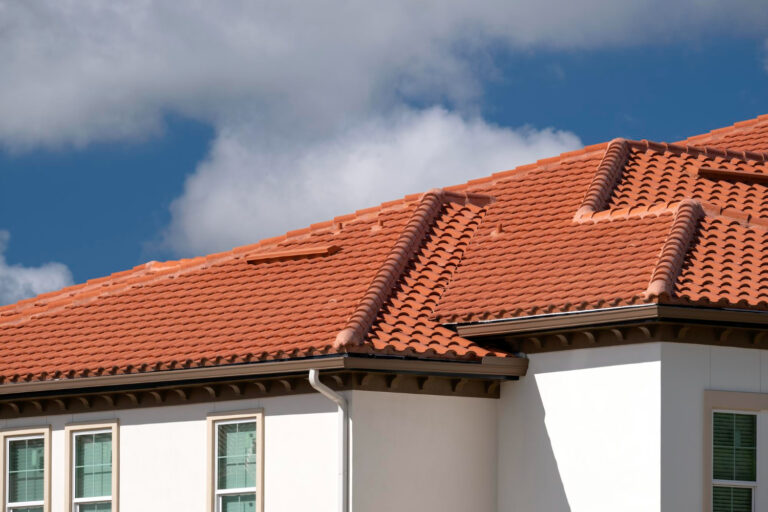
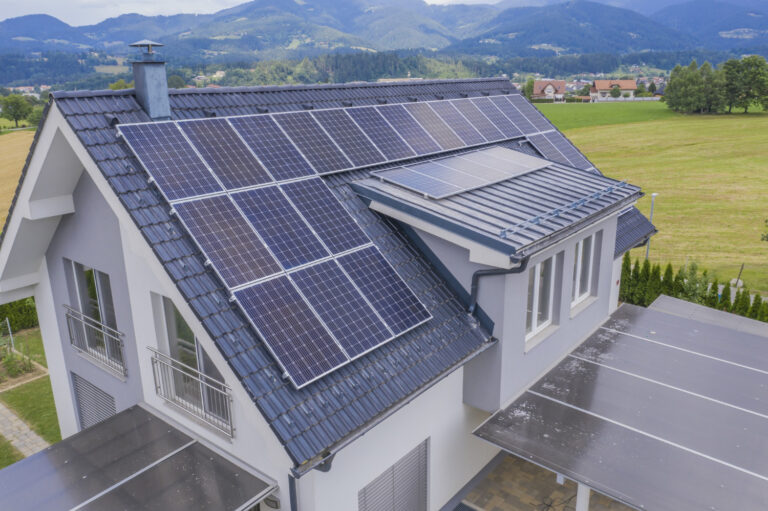
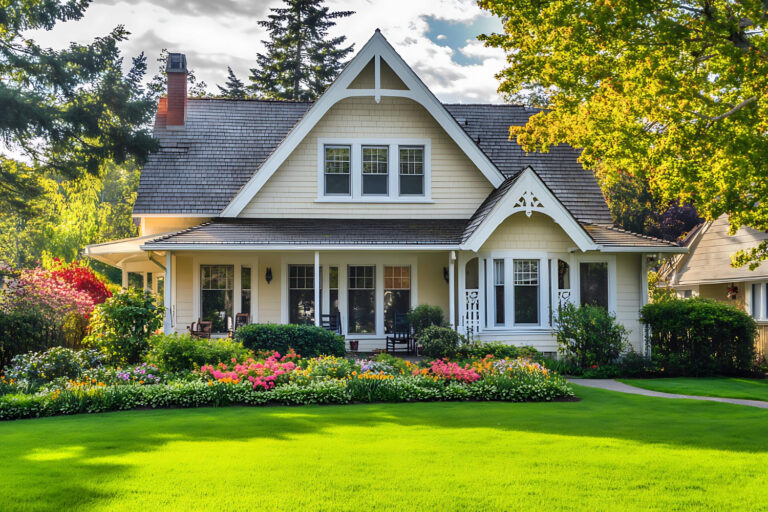

3 Comments
Comments are closed.